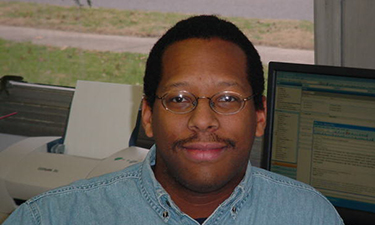 Trace Stevens represents the archetypal story of the parks and recreation career. He took his first job in the field at the ripe old age of 16, making $2.15 an hour as a summer day camp instructor at the Park Services Department in his hometown, Paducah, Kentucky. Stevens worked that job for the next eight years, at the same time graduating high school and matriculating from Murray State College. He strayed from parks and recreation briefly — to teach sixth-grade social studies and work as a youth counselor — only to return to Paducah Park Services when a full-time position opened up in the same department where he started his career years earlier. Today, Stevens is two years into his directorship at Henderson, Kentucky, Parks and Recreation, married to his college sweetheart and the father of two boys who “keep us pretty busy,” he says. Parks & Recreation asked Stevens to talk about his passion for the field and where he sees parks and recreation headed for the future.
Trace Stevens represents the archetypal story of the parks and recreation career. He took his first job in the field at the ripe old age of 16, making $2.15 an hour as a summer day camp instructor at the Park Services Department in his hometown, Paducah, Kentucky. Stevens worked that job for the next eight years, at the same time graduating high school and matriculating from Murray State College. He strayed from parks and recreation briefly — to teach sixth-grade social studies and work as a youth counselor — only to return to Paducah Park Services when a full-time position opened up in the same department where he started his career years earlier. Today, Stevens is two years into his directorship at Henderson, Kentucky, Parks and Recreation, married to his college sweetheart and the father of two boys who “keep us pretty busy,” he says. Parks & Recreation asked Stevens to talk about his passion for the field and where he sees parks and recreation headed for the future.
Parks & Recreation magazine: What do you feel are the most important challenges facing the field of parks and recreation today?
Trace Stevens: The public’s lack of understanding of what people in this field do is a major challenge. The public understands that the grass in the park has to be mowed, but that seems to be the extent of most people’s knowledge. Advocacy for parks and recreation and education of the public on the benefits and duties of most park professionals are a constant need. People are always shocked to learn that we handle things like cemeteries, facility maintenance, pavement repairs and patching in the parks, pool maintenance, afterschool programs and so many varied duties. I really feel a great sense of accomplishment when I can represent the parks and recreation profession as just that — a profession.
P&R: Talk about one of your greatest professional successes.
Stevens: At the city of Paducah, I was a part of the committee that raised funds and constructed the first public inclusive playground in the state. There were other inclusive playgrounds at the time, but they were at schools, rehab facilities and army bases. The $250,000 playground was a big undertaking for a community of our size and required a lot of fundraising, coordination and community outreach. Anytime I’ve been back to Paducah and have gone through the park that playground is practically standing room only. It’s become a landmark in the community in just a short time.
P&R: What does the future of parks and recreation look like to you?
Stevens: Like most other professions, technology is shaping the way we do business. From cloud-based recreation programs that have taken the place of the big “three-ring binders” that sat at the front desk, to GPS-mapped tree inventories and social media marketing, the profession is moving toward a more technical foundation. Another factor is the linking of tourism to parks and recreation. Sport, eco and historical tourism are segments of recreation that are being embraced more each year. The profession is quite different than what it was when I started, when professionals were focused on providing recreation opportunities for the members of only their community.
P&R: What drives you most as a park and recreation professional?
Stevens: I really feel this profession touches so many peoples’ lives in ways they don’t realize, and making those interactions positive simply improves life. There are so many everyday challenges — parks and recreation should be there to make life easier. I enjoy being part of an organization that has a part in providing beautiful locations to create lifelong memories — a marriage in a park, introducing someone to a sport or activity that they enjoy for the rest of their life, or providing that spot for peaceful reflection and remembrance of a loved one in a local cemetery. That kind of opportunity to positively affect others really pushes me to do my job well.
Samantha Bartram is the Executive Editor of Parks & Recreation magazine.

